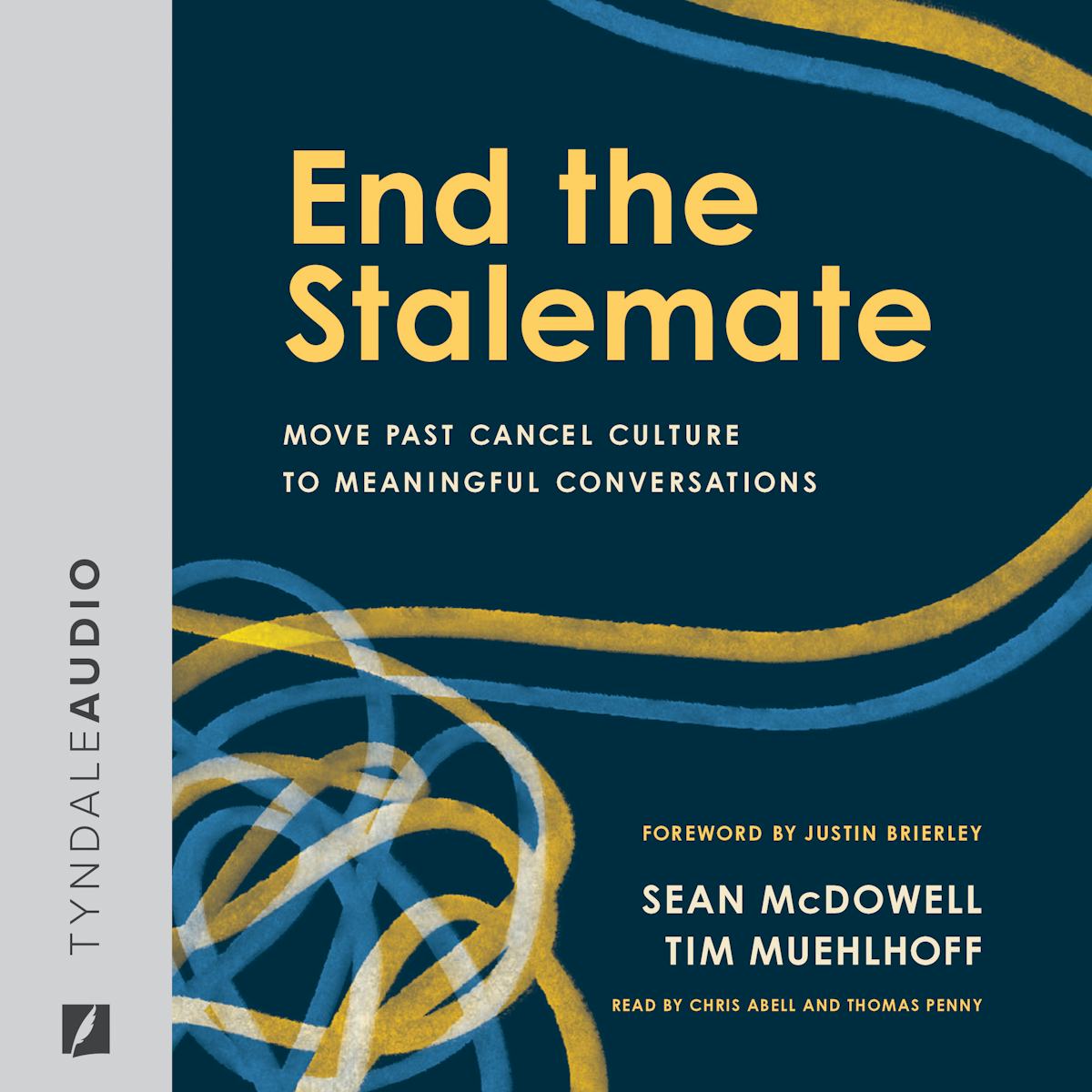
End the Stalemate
Move Past Cancel Culture to Meaningful Conversations
Differences of opinion have always been part of life. For decades, spouses, family members, co-workers, and neighbors have had spirited conversations about politics, social issues, religion, current events, and even sports. But what was different in the past is that these disagreements wouldn’t sever ties between family and friends.
Today, we live in an argument culture that has let to nearly a third of people reporting they have stopped talking to a friend or family member due to a disagreement and nearly two-thirds of people saying they stay quiet about their beliefs due to the fear of offending others. From cyberbullying to hate speech, workplace harassment, demonizing political language, verbal abuse, and intolerance, the vast majority of us―eighty-seven percent―no longer feel safe in public places to share our opinions.
Sean McDowell and Tim Muehlhoff seek to end this stalemate. They believe Christians are called to be God’s ambassadors, which necessarily entails the need to listen to those around us―especially people with diverse and different perspectives. In End the Stalemate, you will be able to revive the art of meaningful conversations by walking through: how to create connection and emotional awareness that opens the door for a fair exchange of ideas and effective communication; how to engage in perspective-taking, as illustrated in Scripture in a number of stories; how to speak the truth in love, from a biblical understanding; how to structure a conversation with those who hold diverse, and/or seemingly threatening, views; and how to honor the words and perspective of those with whom we disagree. Yes, we live in cancel culture. But that doesn’t mean that we as Christians need to conform to our world. Instead, we can be a beacon of sanity that promotes meaningful conversations around what matters most in this life―and the next.
- Opening Credits
- Dedication
- Foreword
- Introduction
- Section 1: Setting the Stage
- Chapter 1: Divided and Angry: How Did We Get Here?
- Chapter 2: A Word Spoken at the Proper Time
- Chapter 3: Creating Personal Maps of Our Experience
- Chapter 4: Bricolage: Piecing Together a Worldview
- Chapter 5: Taking the Perspective of Others
- Section 2: Practical Tips for Engaging Others
- Chapter 6: Engaging Explosive Issues
- Chapter 7: Before, During and After the Conversation
- Chapter 8: Presenting the Other Side
- Chapter 9: Questions for Sean
- Chapter 10: Questions for Tim
- Chapter 11: Putting It All Together
- Conclusion
- Closing Credits